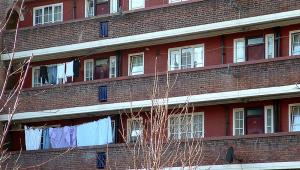The umbrella group highlighted Department for Local Government and Communities figures showing 12,826 homes were sold off under the scheme in 2016/17, with councils only able to start 4,475 homes to replace them.
“Right to Buy itself is under threat, and the scheme will grind to a halt if local authorities are not given the financial powers to replace sold homes and embark on a renaissance in council house building,” the organisation claimed.
Martin Tett, the LGA’s housing spokesperson, added: “A model of Right to Buy that actually allows councils to build more homes would vastly increase the opportunities for families.
“Right to Buy will quickly become a thing of the past in England if councils continue to be prevented from building new homes and replacing those sold.”
The LGA highlighted the issue again that councils are only allowed to keep a third of all receipts from sold Right to Buy homes and, because of caps, are prevented from borrowing to make up the shortfall.
It is calling on government to use the Autumn Budget to allow councils to retain 100% of Right to Buy sales receipts and have more freedom to borrow to invest and to set rents, as well as the flexibility to determine how they implement Right to Buy locally.
Paul Dossett, head of local government at consultancy Grant Thornton UK, commenting on the LGA’s claims, said the Right to Buy scheme had been “a disaster” for both councils and the UK taxpayer.
“Not only have councils ended up getting less value for taxpayer funded assets, it has also resulted in a huge shortage of social housing, which has since resulted in a hike in rent prices and the subsequent increase in homelessness - a cost the taxpayer has to fund in full,” he said.
Dossett suggested extending the length of the required tenancy before people are able to purchase properties under the scheme, from two to five years, to reduce the amount of houses being lost and alleviate some of the pressures being placed on councils.
This follows a report by the IPPR think-tank, which noted 67% of council areas were failing to meet housing demand and also called for the council borrowing caps to be scrapped.
In February the government’s published a whitepaper on housing, promising to increase councils' house-building powers.











